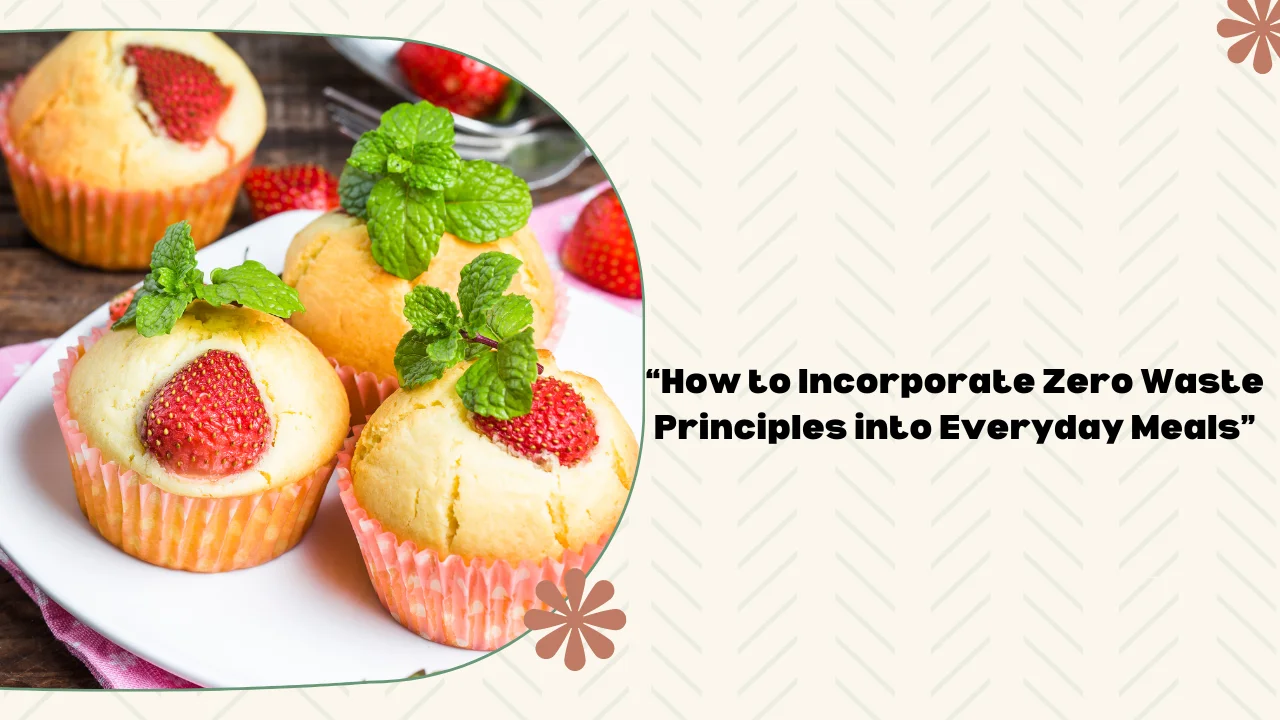Embracing zero waste principles in your cooking not only helps the environment but can also lead to more efficient, creative, and cost-effective meal planning. By focusing on reducing waste, reusing ingredients, and making sustainable choices, you can transform your everyday meals into opportunities for mindful consumption. Here’s a practical guide on how to integrate zero waste principles into your daily cooking routine.
1. Plan Your Meals Thoughtfully
Meal planning is essential for reducing food waste:
- Create a Weekly Menu: Develop a meal plan based on what you have at home and what you need to buy. This helps avoid over-purchasing and ensures you use ingredients before they spoil.
- Check Your Pantry: Incorporate items you already have into your meal plan. Use up older products and integrate them into your recipes to prevent them from going to waste.
2. Shop Smart
Making mindful choices while shopping reduces waste:
- Buy in Bulk: Purchase staples like grains, nuts, and spices in bulk to reduce packaging. Bring your own reusable containers to the store.
- Choose Unpackaged Produce: Opt for fresh fruits and vegetables without packaging. Use your own reusable produce bags to carry them.
- Support Local Farmers: Buy from local farmers’ markets or community-supported agriculture (CSA) programs to reduce transportation waste and support sustainable practices.
3. Use Every Part of Your Ingredients
Maximize the value of your ingredients by using all parts:
- Vegetable Scraps: Save vegetable peels, stems, and leaves to make homemade broths. For instance, save carrot tops and celery leaves for a flavorful vegetable stock.
- Fruit Scraps: Use overripe or bruised fruits to make smoothies, jams, or baked goods. Apple cores and citrus peels can be used to infuse flavor into water or make natural cleaners.
4. Store Food Properly
Proper storage extends the life of your ingredients:
- Refrigeration: Keep perishable items like dairy, meat, and leafy greens in the refrigerator to maintain freshness.
- Freezing: Freeze excess fruits, vegetables, and cooked meals to extend their shelf life. Label and date frozen items to keep track of what you have.
- Pantry Storage: Store dry goods like beans, grains, and spices in airtight containers to keep them fresh longer.
5. Cook with Versatility
Create dishes that utilize multiple ingredients and reduce waste:
- One-Pot Meals: Prepare meals like stews, soups, and casseroles that use a variety of ingredients. This helps in using up what you have and minimizes cleanup.
- Leftover Recipes: Transform leftovers into new dishes. For example, use leftover roast vegetables in a frittata or turn extra rice into a stir-fry.
6. Compost Food Waste
Composting is an effective way to handle unavoidable food scraps:
- Start Composting: Set up a compost bin for fruit and vegetable scraps, coffee grounds, and eggshells. Composting reduces landfill waste and produces nutrient-rich soil for gardening.
- Community Programs: If you don’t have space for a compost bin, look for community composting programs or drop-off sites.
7. Reduce Single-Use Plastics
Opt for reusable and sustainable alternatives:
- Reusable Containers: Store food in glass jars, stainless steel containers, or beeswax wraps instead of plastic bags and wrap.
- Reusable Utensils: Use cloth napkins, metal straws, and wooden utensils instead of single-use plastics.
8. Educate Yourself and Adapt
Stay informed and flexible to continually improve your zero waste practices:
- Read and Learn: Explore books, blogs, and online resources about zero waste cooking and sustainability.
- Adapt Recipes: Adjust recipes to fit what you have on hand. If a recipe calls for an ingredient you don’t have, get creative and substitute with what’s available.
9. Share and Donate
Share excess food and ingredients to prevent waste:
- Share with Friends and Family: Offer surplus produce or cooked meals to neighbors or family members.
- Donate to Food Banks: Donate non-perishable items or excess produce to local food banks or shelters.
10. Reflect and Improve
Regularly assess and refine your zero waste practices:
- Track Your Progress: Keep a journal of your zero waste efforts, noting successes and areas for improvement.
- Adjust as Needed: Based on your reflections, make adjustments to your shopping, cooking, and storage habits to further reduce waste.
Conclusion
Incorporating zero waste principles into everyday meals involves thoughtful planning, mindful shopping, and creative cooking. By using every part of your ingredients, storing food properly, and embracing sustainable practices, you can significantly reduce waste and contribute to a more eco-friendly lifestyle. Start with small changes and gradually build on them, and you’ll find that zero waste cooking can lead to more satisfying, cost-effective, and environmentally conscious meals.
